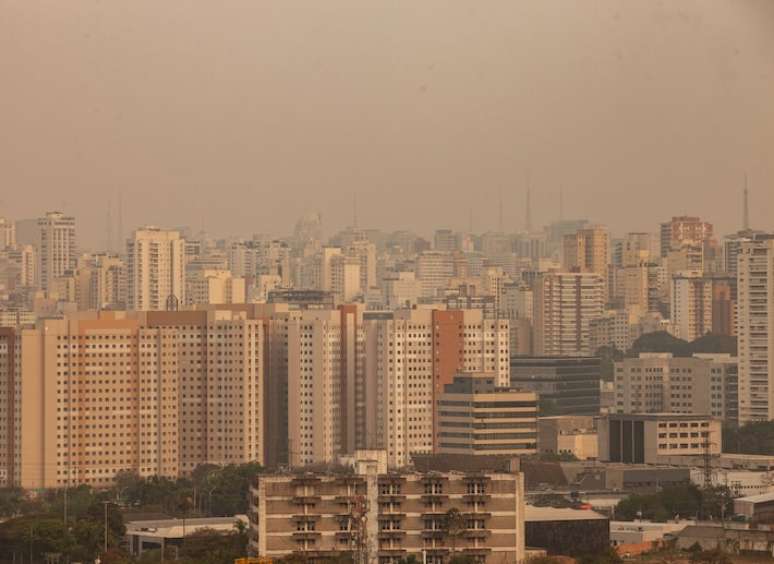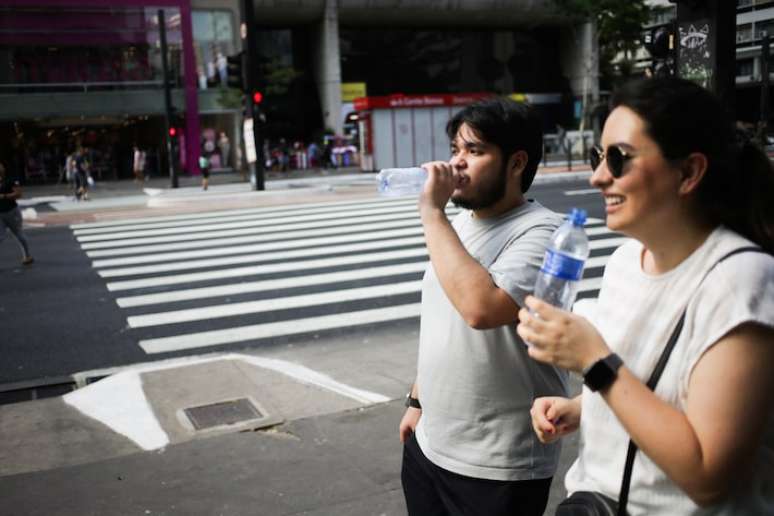Low humidity poses numerous risks to human health; See here how to prevent them!
With some cities facing more than a hundred days without rain, extreme heat and unprecedented drought, humidity in Brazil has plummeted to levels comparable to the Sahara Desert. Since the beginning of the year, the country has faced its longest dry season on record.
In states such as Mato Grosso, Mato Grosso do Sul, São Paulo, Minas Gerais and Goiás, as well as the Federal District, it has not rained significantly for more than a hundred days.

What is low humidity?
Humidity is the climatic element that corresponds to the quantity of water vapor contained in the atmosphere in a given location at the time of its measurement.
Low humidity refers to a reduced level of this water vapor in the atmosphere. When this amount is low, the air may feel dry.
What affects low humidity?
The factors that influence air humidity are those responsible for the processes of evaporation and evapotranspiration. Among them:
Climate and geography: Arid and semi-arid regions, such as deserts, naturally have low humidity.
Temperature: Warm air can hold more water vapor, but as the temperature drops, the air’s ability to hold moisture also decreases, resulting in low relative humidity.
Air conditioning and heating: Equipment that cools or heats the environment can reduce the relative humidity of the air, especially in closed environments.
Precipitation: Little or no precipitation (rain, snow) reduces the humidity in the air. In prolonged periods of drought, the humidity in the air can decrease significantly.
Ventilation and air circulation: Strong winds and drafts can also reduce humidity. In places where air circulates rapidly, moisture can be dispersed more quickly.
Local factors: Human activities, such as construction and agriculture, can also affect local air humidity. For example, deforested areas may have lower relative humidity.
How can low humidity affect your health?
Low humidity can affect your health in many ways, especially because dry air can disrupt the natural balance of your body and the environment. Some of the major health impacts include:
Breathing problems: Dry air can irritate your airways, causing coughing, dry throat, and exacerbating respiratory conditions such as asthma, bronchitis, and sinusitis. The lining of your airways can dry out, making them more vulnerable to infection.
Skin dehydration: Lack of moisture can cause dry, cracked skin, which can lead to discomfort and conditions such as dermatitis and eczema. Dry, cracked lips are also common.
Dry and irritated eyes: Dry air can dry out the mucous membranes in your eyes, causing irritation, redness, and sensitivity to light. This can worsen problems like dry eye syndrome.
Worsening of allergic conditions: Low humidity can increase the concentration of dust and other allergens in the air, which can worsen allergy and asthma symptoms.
Voice problems: Dry air can damage the vocal cords, causing hoarseness and difficulty speaking, especially for people who use their voice heavily, such as teachers and singers.
Impact on general health: In dry environments, dehydration can occur more quickly, leading to symptoms such as fatigue, headaches, and mental confusion. Lack of humidity can also affect sleep quality, contributing to tiredness and irritability.
Effects on infections: While low humidity doesn’t directly cause infections, it can weaken your body’s natural defenses and immune function, making you more susceptible to colds and other infections.
How to protect yourself from low humidity?
To protect yourself from low humidity and minimize its negative effects, experts recommend basic strategies that can be adopted in everyday life.
Using the humidifier: Place a humidifier indoors, especially in bedrooms and living rooms where you spend a lot of time.
Stay hydrated: Drink plenty of water throughout the day.
Use moisturizers on your skin and lips: Moisturizing creams and lotions help prevent dry skin.
Check the room temperature: Avoid extreme temperatures and excessive use of heaters, which can further dry out the air.
Ventilate your space: Make sure rooms are well ventilated to avoid the accumulation of dust and allergens, which can be more problematic in dry environments.
Take care of your diet: Consume foods rich in water, such as fruits and vegetables, to help keep your body hydrated.
Source: Terra
Ben Stock is a lifestyle journalist and author at Gossipify. He writes about topics such as health, wellness, travel, food and home decor. He provides practical advice and inspiration to improve well-being, keeps readers up to date with latest lifestyle news and trends, known for his engaging writing style, in-depth analysis and unique perspectives.






![It All Begins Here: What’s in store for Monday 27th October 2025 Episode 1293 [SPOILERS] It All Begins Here: What’s in store for Monday 27th October 2025 Episode 1293 [SPOILERS]](https://fr.web.img6.acsta.net/img/41/39/413989e0bd493a6d9c6b47c276d6bcf1.jpg)

